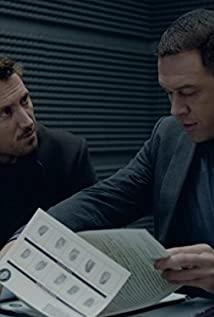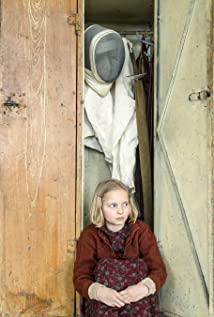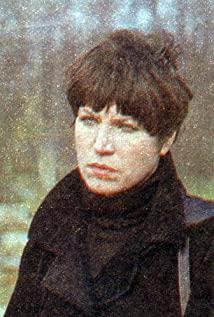A film reflecting on the era of Soviet dictatorship is nothing in Russia or Eastern Europe, but in a small country like Estonia, which only became independent in 1991, it is very precious.
"Reflection" itself contains elements of aftertaste and reflection. "The Fencer" directed by Klaus Harlow (also translated as "The Swordsman" 2015), let the time go back in time to 1952, the young man Ender Nellis came from Leningrad to the second city of Haapsalu in Estonia middle school. The principal looked suspiciously, "Why are you willing to come to our small city from a big city?" Ender said I like it here.
At this time, the spirit of the Estonian people, like the material, can be described as silence and depression. As a former fencer, the only thing Endel can do here is teach children to fencing. This is the little girl Marta saw him practicing swords and asked curiously, "Can the teacher teach me swordsmanship". It reminded him that it was better than nothing, and he liked being with the kids. So he posted a notice. Unexpectedly, more than 20 elementary school students who learned swordsmanship showed up on Saturday. This gave him confidence. He chopped a branch from the reeds and used it as a tool for the children to practice swords. The grandfather of the little boy Jan also specially took out a real sword, which he practiced when he was at university in Leipzig.
But the sport of foil was not favored in Estonia at that time, especially under the suppression of the Soviet Union. He was even questioned by the principal as a remnant of feudal society. At the parent meeting, Yang's grandfather first made a rebuttal, and when he raised his hands to vote, he was gradually recognized by the parents. The impressive fencing training contrasts with the secret of the principal's private knowledge of Ender's life experience through various channels. Ender immersed himself in the world of fencing with children, and also gained love with Kadri. Sometimes impatient, he told Kadri that I'm not good at communicating with children, and she reassured him that you need to be patient.
Alexei, a friend from far away in Leningrad, also sent two boxes of genuine second-hand swords. But at this time, a silent dark net has been slowly spread, and the principal learned that Ender Nellis's real name was Ender Keller, and that he had an experience that was not in line with the mainstream of Soviet socialism. With Young's grandfather being secretly taken away, Ender finally told Kadri the truth. It turned out that at the beginning of the "World War II", due to the special environment in Estonia, he, like other young men, was forced to serve in the German army, and then escaped and came to Leningrad. Imprint, "black" into the file. Kadri said people are taken away here every day, feeling helpless and sad. But the All-Soviet middle school students' fencing competition in Leningrad was approaching. During the hesitation, Ender was moved by the students' love. He decided to take the risk and chose four students including Yang and Matar to go to the competition.
The children, ignorant of everything, sat on the train, enjoying the fleeting view outside the window, immersed in excitement. When it came to the game, he was told that he needed an electric foil, but fortunately, Shirin, the team leader from Yerevan Middle School, was willing to lend it to them. At the beginning of the competition, all the way through danger, Matar, as a substitute, defeated the impossible opponent with his own will and ingenuity, and finally won the championship.
During the game, the police had already arrived, and Ender wanted to escape but was reluctant to part with the students who were fighting. In the corridor, he met the principal. The principal said proudly that he completed the task, you can also leave, the Soviet Union is so big. The so-called completion of the task is nothing more than the fact that the principal is afraid of being implicated, paid credit to the organization, and wants to be a hypocritical "good person". In the end, Ender did not leave. He appeared at the most stalemate of the game, and he encouraged Matar to play bravely. As a result, she lived up to her expectations and won with one blow. After the joy of victory, Ender was quietly taken away.
On March 5, 1953, Stalin died, millions of prisoners of war were released, Ender got off the train, and Kadri and the children all greeted him, which moved him. He can show off his skills again. In the years that followed, Estonia won numerous world fencing championships, and until today, Ender has contributed greatly to his death in 1993.
It can be said that the film is bland and nothing special, and it still belongs to the category of traditional film narrative. But as a small country that has already enjoyed freedom and democracy, autocratic dictatorship is gone. In order to avoid repeating the same mistakes, it is also a responsibility and a memory to save the memory of the past. History often repeats itself in some form. Only by deeply analyzing this pain from the ideological level, so that future generations can remember it better, is this strong and precious.
2016, January, 24
View more about The Fencer reviews











